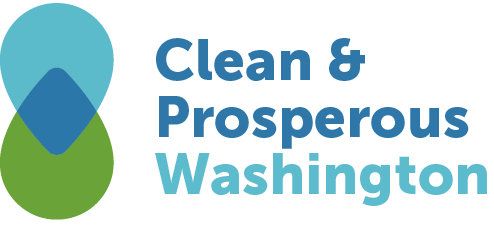Hot off the press
The Cap-and-Invest Linkage Criteria: Preliminary Analysis Report has been published by the Washington State Department of Ecology:
Per the Department of Ecology’s Climate Commitment Act Implementation Group,
 “This report includes background on linkage, a summary of input received, and Ecology’s initial evaluation of the linkage criteria from the CCA. The report will help inform the Director’s preliminary decision on whether to pursue linkage with California and Québec – expected in late October/early November.
“This report includes background on linkage, a summary of input received, and Ecology’s initial evaluation of the linkage criteria from the CCA. The report will help inform the Director’s preliminary decision on whether to pursue linkage with California and Québec – expected in late October/early November.
In our preliminary analysis, we identify several critical ways linkage would likely benefit Washington’s communities, environment, and business, including:
- By reducing impacts to households, and low-income families in particular, resulting from businesses passing on compliance costs in the form of higher prices for gasoline and home heating.
- By producing more stable market conditions which helps businesses plan their decarbonization strategies more proactively and with greater certainty.
Because Washington would still maintain control over its program and policies in a linked market, the overall stringency of the program, including policies that address impacts to Tribes and overburdened communities, would not be weakened.
California and Québec will also need to decide whether to link with Washington. Before Ecology makes a final decision on linkage, there would be several opportunities to provide input and Ecology will continue to refine our criteria analysis.”
The report is 97 pages, so it’s not light reading. As we’re thinking about linking, one section in particular merits highlighting here:
Linkage’s impact on compliance costs, consumers, and the economy
Washington’s cap-and-invest program is designed to reduce greenhouse gasses in a flexible manner, allowing entities to reduce their emissions in the ways that are the most cost-effective for them.
Research has shown that larger markets are more liquid, reduce price volatility, and result in lower cost emissions reductions. Studies have also suggested that entities operating in larger carbon markets rather than multiple smaller markets are more likely to invest in clean technologies, as afforded by a more standardized and stable regulatory environment. Joining the substantially larger combined California-Québec market will make it easier for Washington entities to reduce their compliance costs – both by reducing allowance prices and by expanding market demand for cleaner technologies and energy sources.
Critically, this also means reduced prices for consumers in cases where businesses decide to pass their compliance costs on to their customers.
This is why we are advocating for linkage as part of our proposed Strategy for the Urgent Reduction of Greenhouse gas Emissions.

Please join our SURGE campaign so we can keep you updated on our progress and how you can help.

